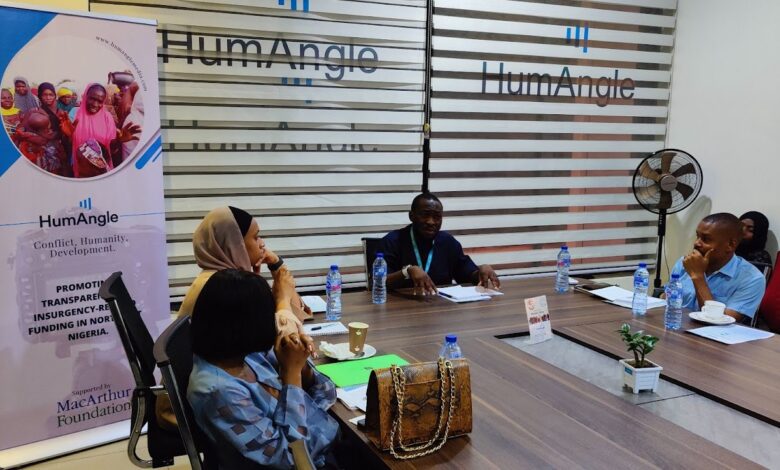MacArthur Foundation Approves $19.2m To Strengthen Nigeria’s Accountability Journalism
Head of the Nigeria office, Dr Kole Shettima, explains that supporting investigative reporting in the region is crucial to tackling corruption.

MacArthur Foundation has announced that it is providing more funding to independent media organisations in Nigeria to promote accountability, transparency, and civic engagement.
The grants, which are part of the foundation’s On Nigeria programme, total over $19.2 million and will go to 13 local and regional organisations.
In a statement released on Wednesday, the foundation said this batch of funding is a continuation of its work “to contribute to the health and resilience of Nigeria’s media and journalism sector, in particular, bolstering organisations that conduct investigative and accountability journalism to uncover and document corruption”.
The initiatives supported include training programmes on data and investigative journalism, development of sustainable business models, development of skills and language proficiencies, and election fact-checking exercises.
Dr Kole Shettima, MacArthur’s Nigeria Office Director, said it was crucial to strengthen the capacity of media organisations as part of efforts to tackle corruption.
“A strong, independent media sector forms the backbone of democracy,” he explained. “This continued support of key media and journalism organisations will deepen, consolidate, and institutionalise anti-corruption reporting at the local and state levels and create more opportunities for the voices of rural people, women, young people, and minority ethnic groups to be heard.”
The grantees include Bayero University, Cable Newspaper Journalism Foundation, Centre for Journalism Innovation and Development (CJID), The Conversation Africa, Daily Trust Foundation, Daria Media, HumAngle Media, International Centre for Investigative Reporting (ICIR), Media Development Investment Fund (MDIF), Women Radio FM, Tiger Eye Social Foundation, Wadata Media and Advocacy Centre, and the Wole Soyinka Centre for Investigative Journalism (WSCIJ).
MacArthur’s On Nigeria programme has since 2015 approved funding of over $133 million for 117 organisations to support their efforts in strengthening accountability.
Some of the grantees recently announced have received funding from the foundation in previous years, which they invested in impactful programmes.
“Corruption is very huge in Nigeria and there is no way the Nigerian media can tackle the problem of corruption in the country without independent funding,” Dayo Aiyetan, executive director of the ICIR, a MacArthur grantee, said in 2020.
“The funding MacArthur is giving has led to investigations that have shaken the foundation of the country in the last three years. It has expanded the works of journalists to scrutinise and make government, government institutions, and officials accountable. The biggest success of this project is that we have gotten more journalists interested in doing watchdog reporting that can have impact on society and bring about change.”
Support Our Journalism
There are millions of ordinary people affected by conflict in Africa whose stories are missing in the mainstream media. HumAngle is determined to tell those challenging and under-reported stories, hoping that the people impacted by these conflicts will find the safety and security they deserve.
To ensure that we continue to provide public service coverage, we have a small favour to ask you. We want you to be part of our journalistic endeavour by contributing a token to us.
Your donation will further promote a robust, free, and independent media.
Donate HereStay Closer To The Stories That Matter




